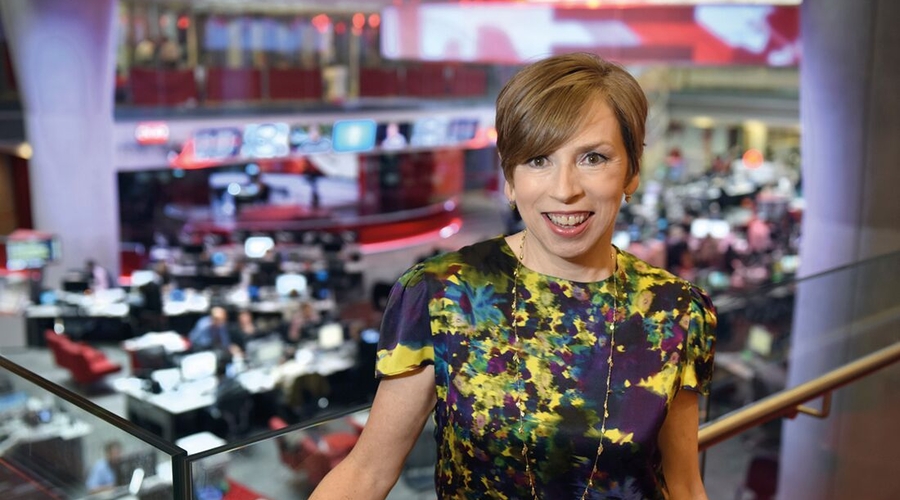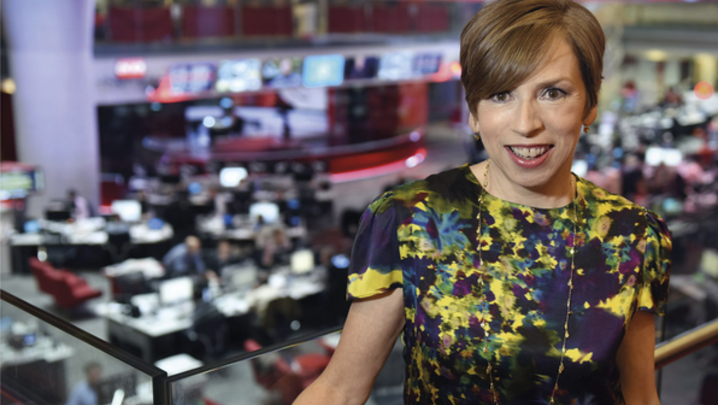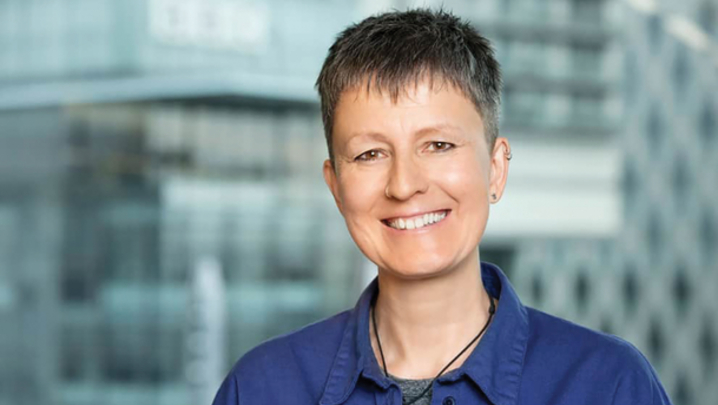Stewart Purvis argues that Fran Unsworth’s experience will be vital in her new role as the BBC’s head of news
Fran Unsworth will need no reminding that the BBC calls itself “the biggest provider of news in the UK” and “the world’s largest broadcast news organisation” and that it recently announced the “biggest expansion since the 1940s” in international operations.
With more than 35 years’ experience of working for the corporation, she also knows that BBC News regularly quotes independent evidence that it is, “by far, the most trusted and impartial news provider in the UK”.
At 77% of the UK population, the reach of BBC TV news is double that of its nearest competitor. And it has a threefold lead in online news.
The corporation calculates that its “total global news audience” last year was no fewer than 345.5 million people. While everyone else hacks away at their local news operations, the BBC has found enough cash in its attic to scrap planned cuts of £10m to its local radio stations.
In other words, Unsworth, who was the favourite to land the job, having overseen an expansion of the World Service, will be running an empire that encompasses TV and radio journalism across the globe, websites, podcasts and Snapchat.
She can expect an annual salary of around £350,000 and, based on her predecessor James Harding’s expenses for 2016-17, can anticipate travelling as far afield as New York, Moscow, Riyadh, Istanbul and Milton Keynes and spend five nights at the Davos economic summit.
One of her big decisions will be how to run the place and how to divide her day between management and journalism. Spend too much time in those meetings brilliantly parodied in W1A and you lose touch with the day’s news. Avoid them to focus on journalism and you won’t be there to say “bollocks” when a “brilliant, brilliant” director of strategic governance makes a move on your patch.
At 77% of the UK population, the reach of BBC TV news is double that of its nearest competitor
The buck will absolutely stop with her on how £80m is to be saved each year until 2022 from the licence-fee-funded news operations.
We don’t know what percentage this represents of the total BBC News budget, because that figure isn’t published. What we do know is that the BBC’s two TV news channels have to shave 10% off their total costs. Neither can be considered over-resourced compared with their competitors.
BBC Newsgathering has to “streamline” its operations by sending fewer people to cover the same story. And Ofcom is due to review the BBC’s operations in the English regions – also part of the news empire.
Some £8m per year is already being moved out of internal budgets to pay for 150 “local democracy reporters”, employed by external regional news organisations.
The BBC’s Annual Plan has a long and ambitious to-do list for Unsworth. Just a few examples: more impact on young audiences; more Reality Checks and other ways of fighting back against fake news; more “slow news” to develop greater understanding of events; more video on mobile through the BBC News app. A lot more seems expected for less money.
There are those in BBC News who think that the cost-cutting has been left late and that the new director will have to cut deeply and painfully in order to meet the targets.
Moreover, sorting out equal pay for the men and women in BBC News earning under £150,000 is likely to be another net cost. This issue appears to have been simmering long before the names of on-screen talent paid more than £150,000 were disclosed.
Coincidentally, while the overall savings target is £80m, an equivalent figure is arriving in new money from the UK government. In an unusual and little noticed “give and take” process, the BBC promised savings to take on the cost of free TV licences for the over-75s, but was then offered money by the government for a significantly enhanced World Service.
However, central newsroom jobs aren’t exactly interchangeable with those in new language services in Amharic, Igbo, Marathi and Pidgin English.
As a result of a separate government decision made during the Charter review process, Unsworth will be the first to face a fully independent outside regulator, who can rule on the BBC’s impartiality.
My own experience as a senior Ofcom executive was under the old system. Then, the regulator had the final say on what used to be called “harm and offence, taste and decency” but not on “impartiality and accuracy”, which the BBC kept to itself.
I would categorise the BBC’s attitude to Ofcom as unduly aggressive, bordering on hostile to the very idea of independent regulation. A sign that this mindset has not completely disappeared under the broader system of Ofcom oversight emerged this autumn, during a dispute between the two organisations over audience complaints.
This was resolved only when Ofcom demanded that the BBC publish the data about such complaints that ITV and Channel 4 already disclosed.
One way of the BBC limiting such clashes with Ofcom is to admit to on-air mistakes earlier than it has traditionally done. This may explain the recent decision by the BBC’s executive complaints unit to overrule the Today programme and to apologise for breaching editorial guidelines by allowing Lord Lawson to claim that global temperatures had not risen in the last decade.
The item was transmitted in August. The apology was made in October. In the world of complaints handling, that is prompt.
The downside for the director of news is that she may be perceived as failing to stand up for her team sufficiently at a time when Brexit has created new and lasting levels of toxicity.
At an industry event last year, a BBC executive was asked why ITV, not the BBC, had the bright idea of using George Osborne and Ed Balls as election-night pundits. The executive replied that the BBC could not have done so because both men were anti-Brexit.
It sounded like a symptom of what some academics have called “regulated equivocation”, where “objectivity is trumped by impartiality”.
Lord Hall has said that Fran Unsworth brings a “combination of excellent news judgement, authority, management know-how and the trust of her colleagues, both in news and across the BBC.”
The new chief’s experience is beyond doubt. She is a known quantity, unlike James Harding, who was a newspaper person through and through.
Her previous roles include working as the BBC’s home news editor, head of news gathering and deputy director of news and current affairs. Tellingly, she was acting director of news and current affairs in 2012-13, following the Jimmy Savile scandal.
Running BBC News and Current Affairs has always been one of British broadcasting’s biggest and most demanding jobs. Her appointment can be interpreted as turning to an experienced hand during a time of unprecedented challenges for everyone working in broadcast news.
Crucially, she is no stranger to cutting costs. Three years ago, she explained to me: “Another £50m [of cuts], well, it’s going to be tough. I’m not saying it’s going to be easy. But I think the challenge is to do it in a way that the audience doesn’t notice. And the fact that we’ve done it before gives me some kind of hope.”
Stewart Purvis was one of the BBC’s first news trainees in 1969. He joined ITN in 1972 and went on to become editor-in-chief and Chief Executive. He is currently a non-executive director of Channel 4 and writes here in a personal capacity.







